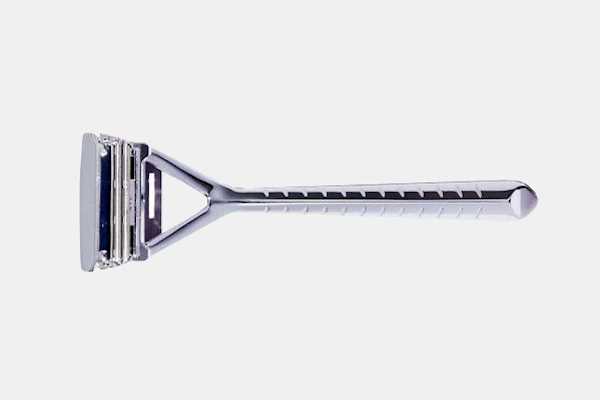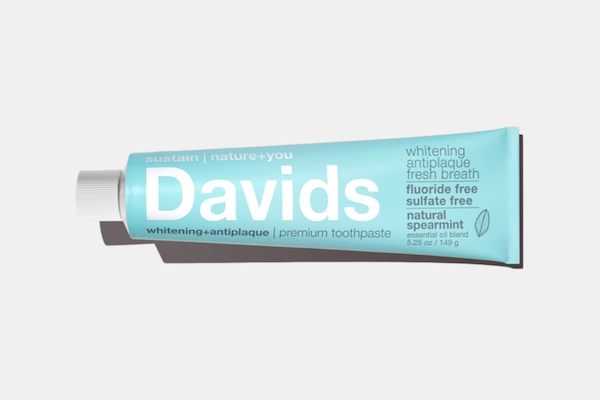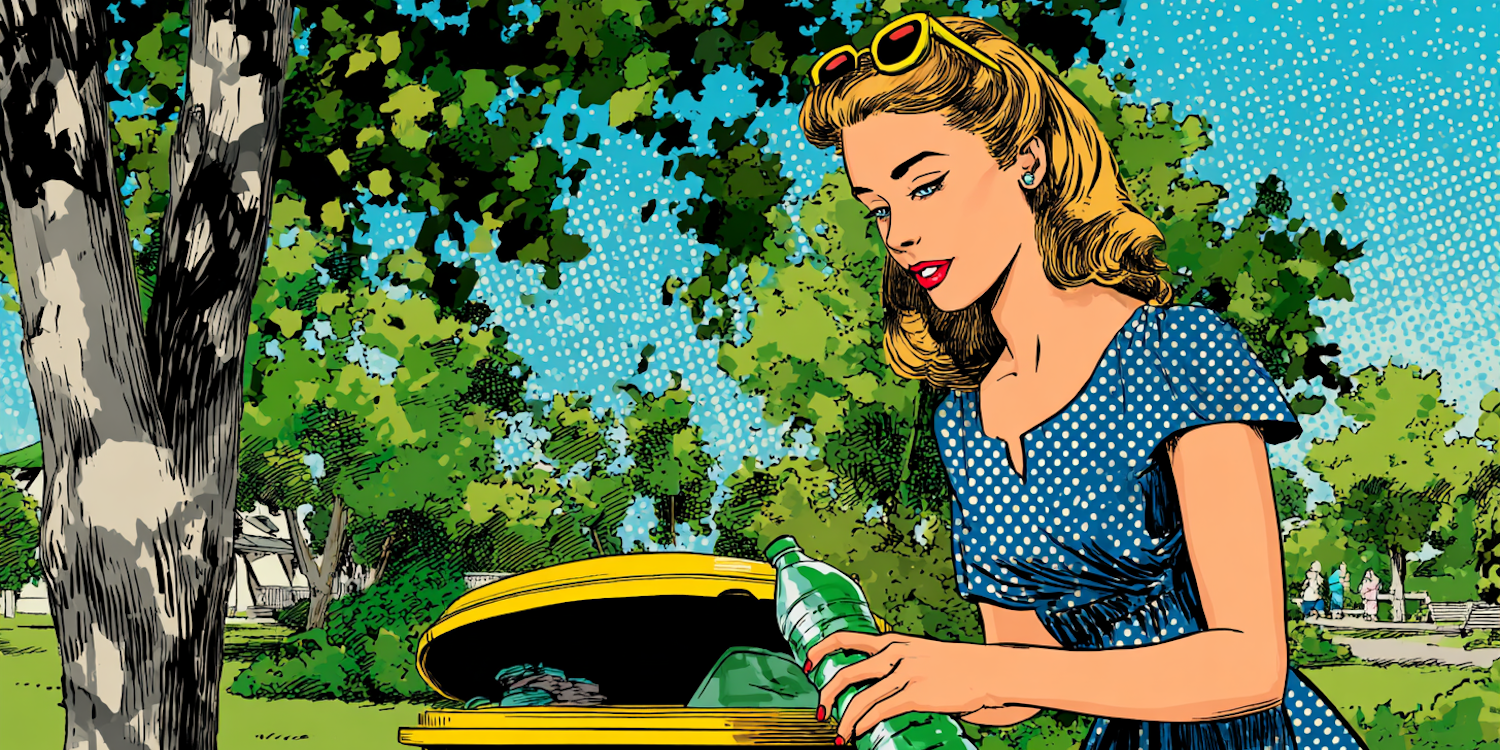Did you know that recycling programs have been around for more than 50 years in the U.S.? Yup – ever since the 70s, people have been sorting their waste into various bins, doing their bit to close the loop.
And after doing it for so long, you’d think we all knew the ins and outs of recycling. It’s pretty intuitive, after all – just toss the cans into the bin. Right?
Right. But the recycling industry is always changing, with new techniques and obstacles turning up as the years pass. And still, many old ideas about recycling linger, eventually turning into myths. While the recycling industry moves on, we keep on believing what we always have, completely unaware.
And no, it doesn’t sound like a big deal, but it actually makes recycling a lot less efficient than it could be. So today, we’re busting 7 common myths about recycling, to help you sift through all the claims out there and stay up-to-date.
Ready to see some recycling myths debunked? Let’s get to it.
Myth #1 Rinsing Recyclables Isn’t Necessary
First, let’s get to the bottom of a question that pops up again and again. Is it necessary to rinse recycling?
The answer is yes – yes, it is.
In single-stream recycling especially – which means that all items go in a single bin and get sorted at facilities – unclean packaging leads to a range of problems.
In mixed batches, food residue and liquids can contaminate other materials during transport. A half-filled bottle of soda is enough to soak through an entire batch of paper products, turning them from recyclable to soggy trash.
Even more, scraps of leftovers can start to mold, which doesn’t just complicate the recycling process. Mold attracts pests and poses health risks for workers in recycling facilities.
Finally, sticky residue can get into machinery and cause hours-long delays. While this may not sound like a big deal, when it keeps happening, it quickly becomes a strain on resources, costing facilities a lot of money. If you read our recent blog on problems in the recycling industry, you may remember that high costs and not enough funding is a big issue today, causing many facilities to shut down.
So, yes – as a rule of thumb, always rinse your recyclables before putting them in the bin. That said, they don’t need to be squeaky clean. Just give them a rinse or a wipe-down, let them dry off, and then toss them in the bin.
Myth #2 You Don’t Have To Sort Trash Out of the Recycling Bin
Much like the previous myth, this is a common misconception that has big consequences.
While single-stream recycling has many benefits – including how much more gets recycled when it's easier to do – it has also made many believe that whatever you toss into the recycling bin will magically get a second life. Which is simply not true.
In fact, about 25% of what gets tossed in the recycling bin today isn't recyclable. This wastes fuel and space during transport, creates safety hazards for workers, destroys machinery in facilities, and leads to even more contamination.
And contamination is one of the biggest issues facing the recycling industry today. A single item misplaced can send entire batches to landfills, wasting tons upon tons of otherwise recyclable materials.
About 25% of what gets tossed in the recycling bin today isn't recyclable.
Hopefully one day, it will be possible to recycle everything. But until then, despite the good intentions, non-recyclables in the recycling bin does more harm than good. If you want to learn more about wishcycling and how to avoid it, check out this article all about it!
Myth #3 Items Made with Multiple Materials Can’t Be Recycled
Back in the early days of recycling, this may have been true. But today, we have advanced technology that can separate materials in the sorting process. Most recycling facilities have heating technology that can melt away adhesives, and magnets to sort out any bits of metal.
So, all those staples? Don’t worry about them! And you don’t have to separate the plastic window from your envelopes, either. Recycling facilities will be able to handle that for you.
Which, of course, is fantastic. Because not only does it make recycling easier – it also means a wider range of products can be recycled.
Myth #4 Recycling Uses More Energy Than Manufacturing From Raw Materials
In a word? False. Extracting and processing raw materials, such as oil and wood, requires massive amounts of energy – much more than recycling does.
Don’t believe us? Well, recent stats from the Environmental Protection Agency prove that recycling is a rockstar at saving energy:
- Recycling aluminum cans saves 95% of the energy needed to make cans from raw aluminum.
- Recycling steel and tin cans save between 60-74% energy, compared to making new ones.
- Recycling paper takes about 60% less energy than making virgin paper.
- Recycling plastic and glass save about a third of the energy it takes to make items from raw plastic and glass.
And that is just the energy saved – don’t get us started on saving natural resources or CO2 emissions.
Myth #5 Materials Can Only Be Recycled Once
While it’s true that plastic has a short lifespan, for the majority of materials this is simply not true.
Paper, for instance, can actually be recycled between 5-7 times before it’s too worn to go through the process again. And when you think about how much raw paper that saves us... tossing your paper products in the recycling bin is definitely worthwhile.
Recycling aluminum cans saves 95% of the energy needed to make cans from raw aluminum.
But even better are glass and metal, which are both infinitely recyclable – meaning that no matter how many times they get recycled, the quality doesn’t degrade. If you want to learn more about infinitely recyclable materials, check out this post all about it.
But plastic is also worth recycling. Sure, it may only go through the recycling process once – but that means we could potentially cut the amount of new plastic created in half. Which could make a huge difference!
Besides, there are some new techniques on the horizon that could make plastic recycling much more efficient... so the future looks bright.
Myth #6 Items Made From Recycled Materials Are Low Quality
This myth is another remnant of days long gone. Today, we have advanced machinery that can turn old products into strong, high-quality materials.
For instance, there are multiple studies showing that recycled paper now meets high-performance standards. Which is a huge step forward! And the Food and Drug Administration has approved recycled glass, metal, and paper containers as safe for use with food products. Which speaks volumes.
And like we mentioned above – both glass and metal can be infinitely recycled, without any loss of quality.
So, don’t let the “Made from Recycled Materials” labels scare you off. Recycling is constantly getting better, and will doubtless play an even bigger role in the future.
Myth #7 Recycling Is a Waste of Time – Everything Ends up In Landfill Anyway
It’s true that recycling isn’t as efficient as it could be yet. Currently, only about 35% of what is put in recycling bins goes all the way through the recycling process. This is partly due to contaminated batches, but also because of a range of other issues facing the recycling industry right now.
But does that mean that recycling is a waste of time? Absolutely not!
Most experts agree that recycling is a crucial tool in battling climate change, and it comes with a range of benefits. For one, recycling reduces pressure on landfills already stuffed to the brim, and keeps trash out of our oceans and waterways.
Not to mention the resources, energy, and CO2 emissions recycling saves – all crucial factors in fighting global warming. In other words? Recycling is more than worth your time.
And there you go – that’s 7 recycling myths debunked! Which one surprised you the most? Share with us in the comments below!
Psst… Curious to learn about Upcycling? Check out this post next!






